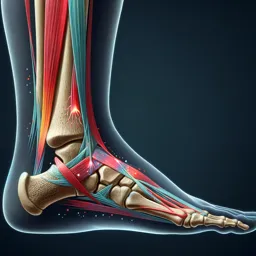What is Physiotherapy?
Physiotherapy is a healthcare profession focused on assessing, diagnosing, and treating physical disorders and disabilities. It aims to restore and enhance movement, function, and overall well-being in patients of all ages. Physiotherapists use evidence-based techniques to help manage pain, improve mobility, and prevent future injuries.
Core Principles of Physiotherapy
- Patient-Centered Care: Each treatment plan is tailored to meet the unique needs and goals of the individual.
- Evidence-Based Practice: Interventions and therapies are chosen based on the latest research and clinical guidelines.
- Holistic Approach: Physiotherapists consider the patient’s physical, emotional, and social factors impacting their health.
Common Techniques Used in Physiotherapy
- Manual Therapy: Hands-on treatments such as joint mobilizations, massage, and stretching.
- Therapeutic Exercises: Individualized exercise programs to improve strength, coordination, flexibility, and endurance.
- Electrotherapy: Treatments involving electrical stimulation, ultrasound, or heat and cold applications to reduce pain and inflammation.
- Education and Advice: Teaching patients about posture, ergonomics, and lifestyle changes for better health outcomes.
Benefits of Physiotherapy
- Reduces pain and discomfort
- Restores and improves movement and mobility
- Enhances recovery after injury or surgery
- Prevents further injuries or complications
- Improves balance and coordination
- Promotes independence in daily activities
Applications of Physiotherapy
Physiotherapy can help with a wide range of conditions, including:
- Orthopedic issues such as fractures, sprains, and arthritis
- Neurological conditions such as stroke or multiple sclerosis
- Respiratory problems such as chronic obstructive pulmonary disease (COPD)
- Post-surgical rehabilitation
- Work and sports-related injuries
Getting Started with Physiotherapy
If you’re experiencing pain, limited movement, or recovering from injury, a physiotherapist can help you regain function and quality of life. Treatment typically begins with an assessment, after which a personalized management plan is developed to suit your goals and lifestyle.
Conclusion
Physiotherapy is an essential aspect of modern healthcare, promoting recovery, independence, and overall well-being. Whether for rehabilitation or prevention, its comprehensive, patient-oriented approach can make a remarkable difference in managing a variety of health conditions.































